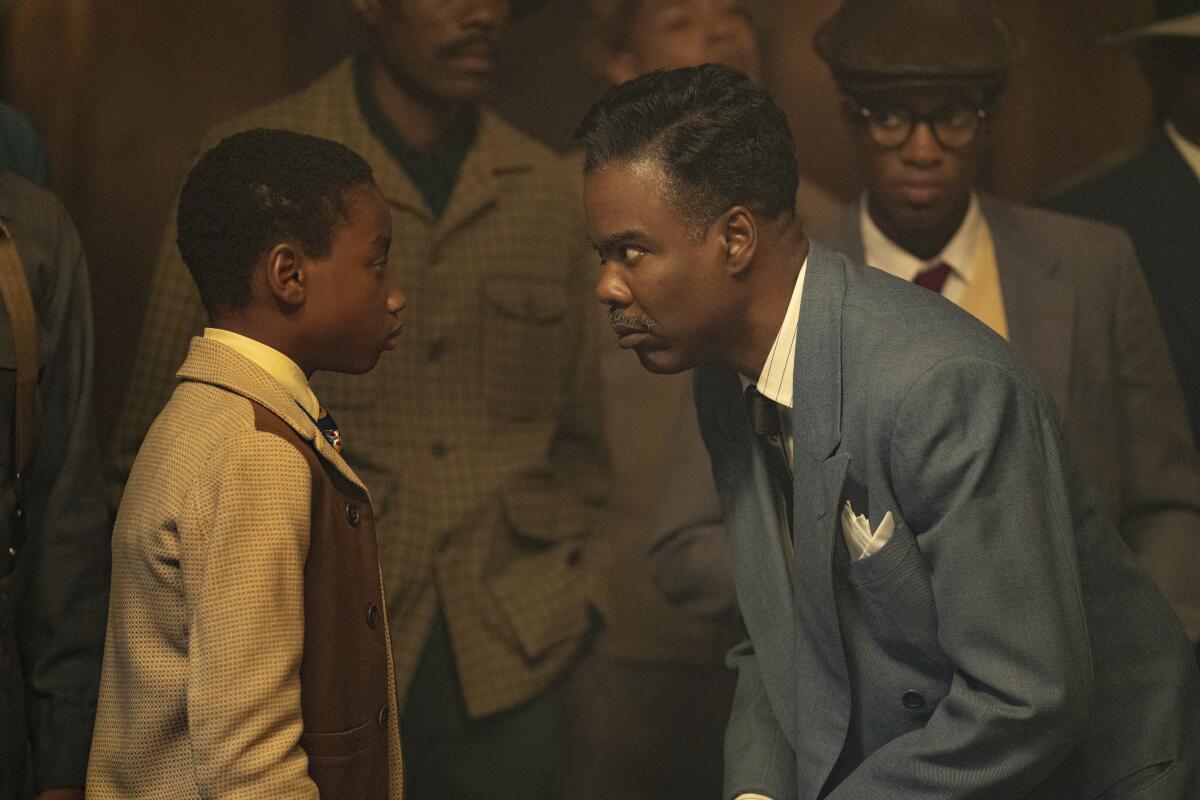At James Bond studio MGM, questions mount about the company’s direction

After Metro-Goldwyn-Mayer Studios’ exit from bankruptcy a decade ago, the storied film and television company made strides toward regaining its status as a Hollywood player.
But growing questions loom about the direction of the Beverly Hills-based studio with the roaring lion logo.
The company, known for the Rocky and James Bond movies, has faced disagreement among investors over whether to sell, according to people familiar with the matter who requested anonymity out of fear of reprisals.
Some worry the studio missed opportunities for a lucrative exit for shareholders by not selling to a Chinese company or tech giant and is now in a difficult position due to the COVID-19 pandemic that shut down movie theaters, closed film sets and triggered industrywide layoffs.
In a significant blow, MGM last month postponed the 007 film “No Time to Die” from this month until Easter weekend. The risk of further delays to MGM’s slate and its large debt load led S&P Global Ratings last month to downgrade the company’s credit rating to B from B+.
“They obviously have a good library of content that they can sell to different content consumers,” said S&P analyst David Snowden. ”But this is a small, independent movie studio with volatile revenues.”
Many challenges MGM faces are shared by other midsize studios. Analysts expect it to become more difficult for MGM to compete as an independent entity as larger companies, such as Walt Disney Co. and Comcast’s NBCUniversal, grow through streaming.
“It’s hard to imagine any of the smaller studios being stand-alone over the next several years,” said LightShed Partners media analyst Rich Greenfield.
Much of the investor tension has centered on the chairman of MGM’s board, Kevin Ulrich, who is chief executive of investment firm Anchorage Capital Group, the studio’s leading shareholder.
Some investors who want to sell think Ulrich, who cofounded Anchorage in 2003, has become too enamored with the entertainment industry, said people close to the company who were not authorized to comment. Others believe Ulrich is simply holding out for a higher valuation. The Wall Street Journal earlier reported investor pressure on MGM.
Anchorage and Ulrich declined to comment.
MGM and Anchorage have yet to publicly comment on a sexual assault allegation made, and subsequently withdrawn, against Ulrich.
On June 2, Jennifer B. Perry sued Ulrich for sexual battery and sexual assault, alleging he assaulted her in a room in New York City’s upscale Mercer hotel on July 25, 2019, according to recently surfaced documents filed with the New York Supreme Court. On July 2, Perry withdrew her case.
Neither Perry, nor her attorneys, responded to requests for comment. Anchorage told investors it settled the suit, according to the financial publication Institutional Investor, which first reported the lawsuit. The Times could not independently verify the settlement.
New York-based Anchorage was among a group of MGM’s top creditors who became shareholders when the studio emerged from Chapter 11 protection in December 2010 under a prepackaged plan to wipe out $4 billion in debt.
Anchorage, Highland Capital Partners, Davidson Kempner Capital Management and Owl Creek Investments each owned more than 10% of outstanding shares of common stock in MGM as of Sept. 30. All four investors declined to comment.
Hedge funds and private equity investors such as Anchorage usually invest in companies for three to five years before selling, though some distressed assets take longer to change hands, industry analysts said.
“The longer you hold an asset, the lower your return on investment is going to be,” said Lloyd Greif, founder of Los Angeles investment bank Greif & Co. “The fact of the pandemic coming along has increased the gamble.”
The company’s decentralized management structure has also presented a challenge, sources familiar with the company said. Since 2018, MGM has been run by an “office of the CEO” that includes Chief Operating Officer Chris Brearton, TV head Mark Burnett and other executives.
MGM adopted the structure when CEO Gary Barber was abruptly fired after eight years. Barber had been pushing for a sale, which Ulrich opposed, according to people familiar with the matter who were not authorized to comment. MGM’s stock was valued higher than $110 a share in 2018. Now its shares are priced at $84.50, according to FactSet.
MGM spokeswoman Katie Martin Kelley declined to comment on sale discussions but said the leadership structure has worked well.
“The studio has, and will continue to, make decisions that are right for the overall business and our shareholders,” Kelley said.
Another source of friction within the company is the clout of reality television impresario Burnett, the “Survivor” and “Shark Tank” producer who became head of MGM’s TV division in 2016, several people close to the company said. Burnett influenced Ulrich’s decision to oust Barber, these people said.
MGM disputes the claim. “Mr. Burnett is not a board member of MGM and does not control board member decisions,” Kelley said.
Burnett, the sources said, has gained sway with Ulrich by showing him the glitzy elements of the industry, including bringing him to exclusive parties and taking him backstage at “The Voice.”
Known for creating some of the biggest phenomena of the reality TV boom, Burnett has produced few major hits since joining MGM, as detailed in recent critical New York Times and Hollywood Reporter stories. Many Hollywood players resent his role in boosting the star power of Donald Trump through “The Apprentice.” A long-discussed faith-based streaming platform from Burnett and his wife Roma Downey’s
production company LightWorkers Media, owned by MGM, has yet to emerge.
Still, Burnett has shows on all four major broadcast networks, including Fox’s “Beat Shazam.”
His unit has “consistently been the most profitable original content division in the company,” MGM’s Kelley said. “To reach this level of success fiscally and creatively over so many years requires sophisticated delegation and management, including an understanding of both holistic and strategic growth.”
Kelley said “market conditions” slowed LightWorkers’ progress in subscription streaming but that MGM is “still actively engaged with investors.”
Some of MGM’s moves during the pandemic have fueled sale rumors. Michael De Luca, named film chairman in January, has been making splashy deals with filmmakers to beef up its slate.
MGM in November trumpeted plans for Oprah Winfrey and Brad Pitt to produce an adaptation of Ta-Nehisi Coates’ “The Water Dancer.” In August, the company announced a plan to remake its Orion Pictures label to focus on movies with diverse filmmakers and casts under Alana Mayo, the former production head of Michael B. Jordan’s company Outlier Society
.
It’s unclear who would be a buyer. Apple and Amazon were thought to be potential acquirers due largely to the appeal of the company’s film and TV library, which includes 4,000 movies such as “Robocop” “The Pink Panther” and “The Silence of the Lambs.” Its scripted TV division is responsible for “Fargo,” “The Handmaid’s Tale” and “Vikings.”

Speculation has swirled that Barber, who now runs Spyglass Media Group, could make a run at the company, which values itself north of $7.5 billion, industry insiders said. MGM’s 2018 agreement to buy out Barber’s stake for $260 million prohibits him from getting involved in MGM matters for three years. A spokesperson for Barber declined to comment.
With the pandemic delaying film releases, MGM had preliminary talks with Apple and Netflix to sell the U.S distribution rights to “No Time to Die” for a one-year license, said people familiar with the negotiations. MGM wanted as much as $800 million for the Bond rights, and no streamer was willing to offer close to that much. Apple and Netflix declined to comment.
The studio would have had to convince 007 producers Barbara Broccoli and Michael G. Wilson of the merits of such a deal. “No Time To Die” would normally gross more than $800 million at the global box office, with hundreds of millions more from home video and other revenue streams.
“It’s MGM’s golden goose, but it’s the Broccolis’ platinum goose,” said one producer familiar with the franchise who requested anonymity to avoid repercussions.
MGM said it is “committed” to a theatrical release.
Although MGM has $2.3 billion in long-term debt, it is not facing a crunch and there’s no immediate need for a sale. MGM had $280 million available under the $1.8 billion loan maturing in July 2023, giving it enough liquidity to meet its obligations over the next year, S&P said.
The pandemic took a toll, prompting the studio to cut 7% of its 750-person workforce in April.
In the third quarter, revenue fell 12 % to $308.5 million and the company posted an $18.1 million loss, reflecting falling box office sales and television licensing revenue. Last year, MGM had a $436.2 million loss in the third quarter after a write-off from its investment in pay television network Epix. MGM in 2017 paid $1 billion for Epix, which faces heavy competition from streaming services that could limit subscriber growth.
But COO Brearton sounded upbeat in the earnings call, citing upcoming TV productions such as Season 4 of Hulu’s “Handmaid’s Tale” and the series “Clarice” for CBS. Movies for 2021 include the Aretha Franklin biopic “Respect” and a Jordan Peele-produced “Candyman” reboot.
“We’ve also seen a tremendous amount of operational momentum in each of our core businesses,” he told investors. “The content shifts and restart of production have set a stage for 2021 that will potentially be one of the biggest years for new content in recent MGM history.”
Times staff writer Meg James contributed to this article.
More to Read
Inside the business of entertainment
The Wide Shot brings you news, analysis and insights on everything from streaming wars to production — and what it all means for the future.
You may occasionally receive promotional content from the Los Angeles Times.








